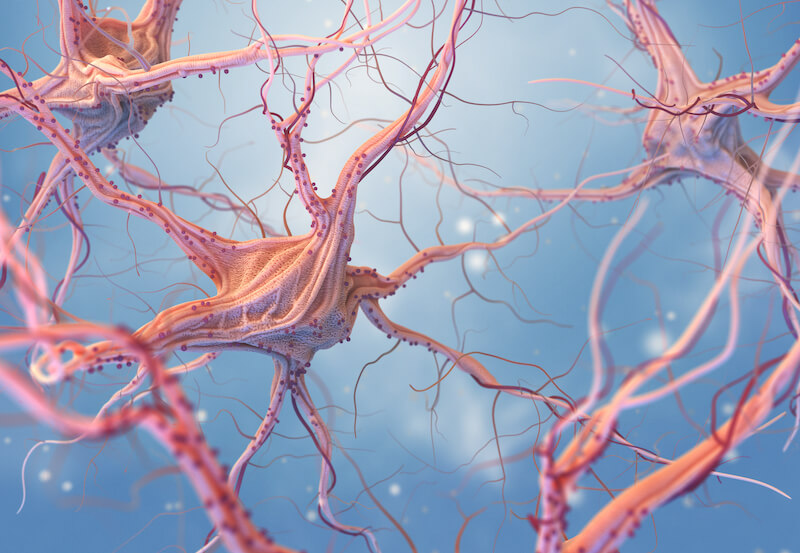
Memory Strategies: Best Ways, Proven Techniques to Memorize
Table of Contents
Memory-growing activities, exercises, and memory-enhancing strategies target our cognition, intelligence, and thinking, reshaping the learning procedure and make various memory strategies an essential aspect of our ability to memorize. Various memory strategies provide the tools necessary to encode, store, and retrieve needed information.
How one applies these tools – develops their memorization skills.
Re-using our past experiences, efficient knowledge acquiring, and the growth of our learning skills are the fundamental tasks for our brain and memory, in particular.
Human cognition is a complex mechanism. How individuals think and memorize are considered an uncovered subject for brain researchers and leading cognitive psychologists who strive to shed light on our consciousness. However, suppose the earlier, limitless mind and endlessly extendable memory capacity were some kind of fiction and part of scientific myths with totally innovative approaches to how to improve memory. In that case, anyone can easily recall a bunch of data and complex concepts. Properly selected memory tricks and well-designed tactics can make a drastic difference to your intelligence levels and make your education experience more straightforward so that you will enjoy your learning.
Not solely applied to enjoy learning, because these proven techniques will spill over to various areas of your life. Enabling you to utilize memorization skills in everyday life, professional work life, and school.
Useful Memory Tricks to Reach Maximum Mental Productivity
Academic tasks can be demanding, challenge your mind, or even induce self-distrust. However, making studying a more fun experience results in the more remarkable ability of information encoding, expanded memory storage, and even increased motivation to study. What is even more paramount, a willingness and desire to learn will push you forward towards spectacular academic results. Discovering how to memorize quicker, you unlock natural mental potential and gain the following skills:
- Capable educational information encoding;
- Long-term maintenance of obtained knowledge in the memory storage;
- When needed by our brain, hassle-free re-access to collected concepts, definitions, and facts (e.g., during exams or implementing vast and complex projects).
A scattered memory can be a reason for extreme forgetfulness and memory lapses, disorganization, and inability to focus on a task. Experiencing brain fog and frequently being spaced out means you need to come up with memory strategies for organizing your brain and keeping your memory on track while learning.

Let’s find out how to get rid of inattentiveness and gain mental clarity while dealing with learning objectives.
Take a deep dive into the information. Any information that you absorb during learning should be properly structured. Otherwise, you may get confused and stuck in one place, slowing down your learning progress. When memorizing information, the initial task for you is to do your best to understand it.
Linking as powerful mind aid. Creating connections and mentally linking unrelated concepts, objects, or items in learning can be a useful practice that brings your memory in top shape. The linking approach paves the way for an easier educational experience and expands mind storage. It is also considered the best way to memorize scientific facts and definitions. The crazier and more vivid the connection you come up with, the highest chances to encode it efficiently, meaning you will never forget some figures or ideas and will recall anything from your long-term storage.
Spend overnight with new knowledge. Theoretical understanding of a complicated subject and freshly gained knowledge during studying can be strengthened if you simply sleep on it. Thus, it is strongly recommended to try learning new material just before you go to bed. The good news is that your brain will not only collect and build up the extensive storage of new information. It is a proven fact that while you are slumbering, there is a huge probability that creative and innovative ideas can be generated by your mind.
Self-testing is imperative. Challenge yourself by testing. It helps to spot your weaknesses and which piece of data has been skipped from you. By determining something you don’t know, you will be able to catch up on missed material, avoiding huge gaps. Of course, you may find self-testing a boring and tiresome activity. However, there is an array of fantastic methods of material revising. Thus, you can check yourself in a fun manner. For example, you can use such an aid to learning as flashcards that contain a brief overview of educational material or tackle quizzes that are available digitally. The key suggestion is to get rid of any distractions and focus on pulling the maximum amount of data from your memory.
Avoid massed practice and try distributed one. When dealing with the task of designing memory strategies, picking the correct learning pattern must be a top priority for an individual who strives to enhance mental processes. To avoid cognitive fatigue and mental strain when processing tons of new information, try to integrate rest periods into your study sessions and alternate activities. Because if cramming really hard during longer periods, you may end up with an overloaded and tired brain.
Write it out. As one of the powerful tools for mental boosting and the most exciting memory tricks, writing is extremely critical, as it engages several brain areas. Rewriting lectures and materials encourages students to absorb knowledge, structure it, and integrate freshly captured concepts with prior information. Apart from rewriting, you can try jotting down complex concepts and some crucial details, prioritizing the most important definitions and facts. Note-taking can facilitate memorization in learning and boost brain function as you age.
Build meaningful groups. To gain accuracy when learning, you can organize information by creating groups of words with similar meanings.
Pick mnemonic techniques that suit your learning needs. Try mixing different memorizing techniques, such as memory palace or chunking, and you will be surprised how they can affect your critical thinking, reasoning ability, and other no less important cognitive processes.
Don’t forget to talk to yourself. Sometimes, after learning new material, it turns out that at the moment when you need to retrieve some details, they are simply escaped from your mind. If you have ever experienced such mental difficulties, it would be a worthwhile idea to review your learning pattern one more time. Maybe some tricks are not so productive and instead of re-reading the material, speaking it out loud would be much more efficient. Try adding such an adaptive and proactive approach to your learning routine.
Regular exercises are a must-have. Well-built memory strategies should contain not only mnemonics, brain-stimulating games, and apps for expanding mind capacity but also some healthier lifestyle choices and everyday habits changes. Thus, adding to your schedule a set of exercises and quick workouts, the release of hormones that are responsible for memory, strong concentration, and information processing will be enhanced. At the same time, the brain will be supplied and enriched with oxygen, and you may even elevate the motivation levels and a thirst for knowledge.
Apply interleaving tactic. Alternating several unrelated definitions and mixing a few completely different concepts will definitely boost your intelligence and help to stay mentally sharp and alert.
The advantages of brain-boosting activities are endless but sometimes underrated. However, if designing a personalized sequence of actions and a learning style that aligns with your needs, it would be possible to stimulate the growth of brain cells and spur your memory skills.
Improve your power of recall with visual and spatial techniques. One of the fastest forms of recalling textual information is to visualize it and build mental images connecting them to certain facts, definitions, or ideas. Combining visual and spatial mnemonics, you will minimize the loss of information during its retrieval and even gain a unique ability to recall complex scientific information in highly vivid details. If you are not yet capable of thinking in mental pictures, there are some quite useful memory tricks that are based on our senses and the ability of imagination to help you to grasp a myriad of meanings and analyze and collect them for further recalling.
Memorable visual connection. Traditional educational approaches when students try re-reading lengthy texts with the mission to remember them are not so stimulative, and such memorization systems definitely lack creativity. Luckily, there are some more productive ways to kick-start your mind and wake up even the laziest brain. Thus, associations as a part of learning are geared toward incredible academic accomplishments. By making mental relationships between concepts and objects intentionally, you will totally transform your educational experience.
The memory palace. In an information-rich world, strengthening memory and cognitive functions is of primary importance. With methods, known as the mind palace, you can fire off the creation of new connections in your brain and stimulate previously inactive pathways with a smartly-build and fun memory tactic. All you need to do is to imagine a well-known location, room, or route, and mentally place the information on the virtually designed mind map.
Songs and jingles. We all have heard short tunes used in advertising and designed in a way to be effortlessly remembered. Such catchy melodies activate our auditory sense, so once we hear a familiar melody, we immediately recall an advertised product or service. How it can help our learning? Well, the concept is the same as with association mnemonics, however, the connections are created between the terms and a specific piece of catchy music or jingle. By selecting appropriate tunes and melodies, you can bring your creative mind fully awake.
Involve your senses while studying. To gain a cohesive picture of our experiences, our brain activates all senses that work together as one strong mechanism. So try to focus on your senses as you learn.
Think of a bright visual metaphor. If visualizing the abstract terms by applying metaphors, it would be possible to enhance the retention of acquired knowledge.

Let’s wrap it up.
For really significant advancement of learning capabilities and progress, some small tweaks to your tactic are not enough to move forward and reach impressive academic results, as there is no one-size-suits-all approach. Instead, for expected outcomes, you have to develop a properly thought-out memory strategy based on the specific needs and goals you are pursuing.